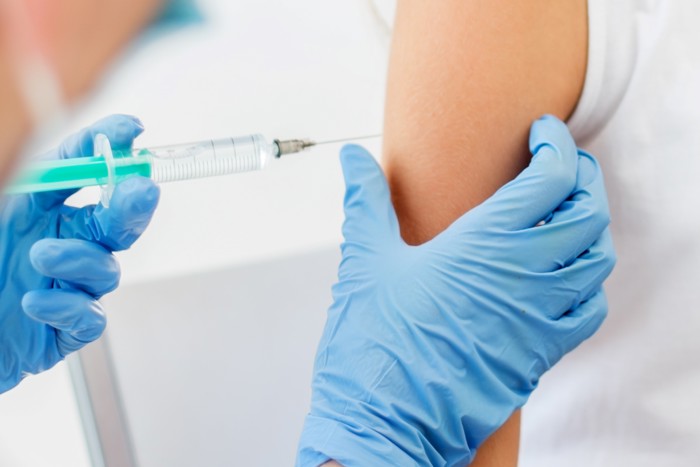The vaccine against measles, mumps and rubella is known as the MMR vaccine, from the abbreviations of the diseases.
The vaccine is a combination vaccine that contains live, weakened measles, mumps and rubella viruses.
When are children offered the MMR vaccine?
The MMR vaccine is included in the childhood immunisation programme, and it is recommended that the child receives two doses.
After the first dose of MMR, which is usually given at 15 months of age, approximately 95 per cent of those vaccinated are protected against measles for many years, possibly for life. A second dose is given at age 11 to ensure protection against measles for the last 5 per cent. Protection against mumps is over 90 per cent after one dose. For long-term protection against mumps, two doses are needed, but even after two vaccine doses, the antibody level decreases with time. Protection against rubella is over 95 per cent after one dose at age 15 months.
It is not harmful to vaccinate a person who has already had one or more of the diseases.
Since the MMR vaccine is a live weakened vaccine, it is important that the public health nurse is informed before vaccination if the child has an immunodeficiency disorder or takes medicines.
About the diseases
Measles
Measles is our most serious childhood disease. The disease is highly contagious. Among those who grew up before a vaccine became available, more than 99 per cent contracted measles.
The disease begins with cold-like symptoms and a high fever, followed by a rash. Measles is often followed by complications such as pneumonia, bronchitis and inflammation of the middle ear. Serious consequences such as inflammation of the brain (encephalitis), permanent brain damage and death occur.
In 2020, the WHO reported 60,700 deaths of measles. The number of deaths has decreased from previous years. The decrease may due to the infection control measures introduced under the covid-19 pandemic. Measles outbreaks with deaths also occur among unvaccinated people in our part of the world.
Mumps
Mumps is a viral infection that causes fever and swelling in the salivary gland in front of the ear. The most common complication is mumps meningitis, which usually passes without permanent damage. A more serious complication is permanent deafness.
If boys contract mumps after puberty, the virus can attack the testicles and lead to reduced fertility, but probably not sterility.
Rubella
Rubella (also known as German measles) is a mild disease that causes fever and rash in both children and adults. If a pregnant woman contracts rubella, the disease can lead to serious injury to the unborn baby. The risk for deformities is up to 80 per cent for disease within the first trimester of the pregnancy.
The most common route of infection for pregnant women is contact with children who have the disease. In some outbreaks, unvaccinated men have been the source of infection. Therefore, it is important that all children are vaccinated.
Common side effects of the MMR vaccine
Brief pain, redness and swelling at the injection site occur. One to two weeks after vaccination, some children will get slight symptoms of the diseases vaccinated against, but this occurs in fewer than 1 in 20. The most common symptoms are fever and rash. Infection with a vaccine virus is not contagious. The complications that occur after the diseases rarely or never occur after vaccination.
In 1997, a hypothesis alleged that MMR vaccine could be a cause of autism. A number of major studies have since been performed which all indicate strongly that MMR vaccine does not cause autism or any other form of brain damage.
The vaccine used is called Priorix or MMRvaxPro. More information about this vaccine is available on the Norwegian Medical Products Agency (formerly the Norwegian Medicines Agency) website. Search for Priorix or MMRvaxPro in the search field.
